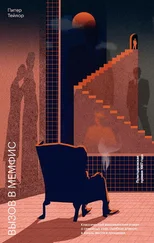Питер Тейлор - Rain in the Heart
Здесь есть возможность читать онлайн «Питер Тейлор - Rain in the Heart» весь текст электронной книги совершенно бесплатно (целиком полную версию без сокращений). В некоторых случаях можно слушать аудио, скачать через торрент в формате fb2 и присутствует краткое содержание. Жанр: Проза, на английском языке. Описание произведения, (предисловие) а так же отзывы посетителей доступны на портале библиотеки ЛибКат.
- Название:Rain in the Heart
- Автор:
- Жанр:
- Год:неизвестен
- ISBN:нет данных
- Рейтинг книги:3 / 5. Голосов: 1
-
Избранное:Добавить в избранное
- Отзывы:
-
Ваша оценка:
- 60
- 1
- 2
- 3
- 4
- 5
Rain in the Heart: краткое содержание, описание и аннотация
Предлагаем к чтению аннотацию, описание, краткое содержание или предисловие (зависит от того, что написал сам автор книги «Rain in the Heart»). Если вы не нашли необходимую информацию о книге — напишите в комментариях, мы постараемся отыскать её.
Rain in the Heart — читать онлайн бесплатно полную книгу (весь текст) целиком
Ниже представлен текст книги, разбитый по страницам. Система сохранения места последней прочитанной страницы, позволяет с удобством читать онлайн бесплатно книгу «Rain in the Heart», без необходимости каждый раз заново искать на чём Вы остановились. Поставьте закладку, и сможете в любой момент перейти на страницу, на которой закончили чтение.
Интервал:
Закладка:
"It stopped a good while ago," he said. And he looked up attentively, for there had seemed to be some regret in her voice.
"I'm sorry it stopped," she said, returning his gaze.
"You should be glad," he said. "I'd have to drill in all that mud tomorrow. "
"Of course I'm glad," she said. "But hasn't the rain made us seem even more alone up here?"
The sergeant stood up. The room was very still and close. There was not even the sound of a clock. A light was burning on her dressing table, and through the open doorway he could see the table lamp that was still burning in the living room. The table there was a regular part of the furnishing of the apartment. But it was a piece of furniture they might have chosen themselves. He went to the door and stood a moment studying the effect she had achieved in her arrangement of objects on the table. On the dark octagonal top was the white lamp with the urn-shaped base. The light the lamp shed contrasted the shape of the urn with the global shape of a crystal vase from which sprigs of ivy mixed with periwinkle sprang in their individual wildness. And a square, crystal ashtray reflecting its exotic lights was placed at an angle to a small round silver dish.
He went to the living room to put out the light. Yet with his hand on the switch he hesitated because it was such a pleasing isolated arrangement of objects.
Once the light was out he turned immediately to go back into the bedroom. And now he halted in the doorway again, for as he entered the bedroom his eye fell on the vase of sweet peas she had arranged. It was placed on top of a high bureau and he had not previously noticed it. Up there the flowers looked somehow curi-
ously artificial and not like the real sweet peas he had seen in the rough hands of the woman this afternoon. While he was gazing thus he felt his wife's eyes upon him. Yet without turning to her he went to the window, for he was utterly preoccupied with the impression he had just received and he had a strange desire to sustain the impression long enough to examine it. He kept thinking of that woman's hands.
Now he raised the shade and threw open the big window in the bay, and standing there barefoot on a small hooked rug he looked out at the dark mountains and at the lines and splotches of lights in the city below. He heard her switching off the two small lamps at her dressing table. He knew that it had disturbed her to see him so suddenly preoccupied, and it was as though he tried to cram all of a whole day's reflections into a few seconds. Had it really been the pale flowers that had impressed him so? Or had it been the setting of his alarm clock a few minutes before and the realization that after a few more hours here with her he must take up again that other life that the yellow streetcar had carried away with it this afternoon? He could hear the voices of the boys in the barrack, and he saw the figure of the woman by the stone wall under the chinaberry tree.
Now he could hear his wife moving to switch off the overhead light. There was a click. The room being dark, things outside seemed much brighter. On the slope of the ridge that dropped off steeply behind the house the dark treetops became visible. And again there were the voices of the boys in the barrack. Their crudeness, their hardness, even their baseness — qualities that seemed to be taking root in the very hearts of those men — kept passing like objects through his mind. And the bitterness of the woman waiting by the streetcar tracks pressed upon him.
His wife had come up beside him in the dark and slipped her arm about his waist. He folded his arms tightly about her. She spoke his name. Then she said, "These hours we have together are so isolated and few that they must sometimes not seem quite real to you when you are away." She too, he realized, felt a terrible unrelated diversity in things. In the warmth of her companionship, he felt a sudden contrast with the cold fighting he might take part in on a battlefield that was now distant and almost abstract.
The sergeant's eyes had now grown so accustomed to the darkness inside and outside that he could look down between the trees
on the slope of the ridge. He imagined there the line after line of Union soldiers that had once been thrown into the battle to take this ridge at all cost. The Confederate general's headquarters were not more than two blocks away. If he and she had been living in those days he would have seen ever so clearly the Cause for that fighting. And this battlefield would not be abstract. He would have stood here holding back the enemy from the very land which was his own, from the house in which she awaited him.
But here the sergeant stopped and smiled at himself. He examined the sergeant he had just imagined in the Confederate ranks and it was not himself at all. He compared the Confederate sergeant to the sergeant on the field this afternoon who had stood a moment puzzling over the tracks that twelve rookies had made. The sergeant is I, he said to himself desperately, but it is not that morning in December of '62 when the Federal dead were lying so thick on the ground. He leaned down and kissed his wife's forehead, and taking her up in his arms he carried her to their bed. It is only a vase of flowers, he remarked silently, rhetorically to himself as his wife drew her arms tighter about his neck. Three bunches from a stand of sweet peas that had taken the lady's garden. As he let her down gently on the bed she asked, "Why did you look so strangely at the vase of flowers? What did they make you think about so long by the window?"
For a moment the sergeant was again overwhelmed by his wife's perception and understanding. He would tell her everything he had in his mind. What great fortune it was to have a wife who could understand and to have her here beside him to hear and to comprehend everything that was in his heart and mind. But as he lay in the dark trying to make out the line of her profile against the dim light of the window, there came through the rainwashed air outside the rumbling of a streetcar. And before he could even speak the thoughts which he had been thinking, all those things no longer seemed to matter. The noise of the streetcar, the irregular rumble and uncertain clanging, brought back to him once more all the incidents of the day. He and his wife were here beside each other, but suddenly he was hopelessly distracted by this new sensation. The streetcar had moved away now beyond his hearing, and he could visualize it casting its diffused light among the dark foliage and over the white gravel between the tracks. He was left with the sense that no moment in his life had any relation to an other. It was as though he were living a thousand lives. And the happiness and completeness of his marriage could not seem so large a thing.
Impulsively, almost without realizing what he was doing, he sat up on the other side of the bed. "I wasn't really thinking about the flowers," he said. "I guess I was thinking of how nicely you had arranged things on the living-room table."
"Oh," she said, for by his very words I guess it was apparent that she felt him minimizing the importance of his own impressions this evening and of their own closeness. In the dark he went to the small rocking chair on which his clothes were hanging and drew a cigarette from his shirt pocket. He lit it and sat on the edge of the little rocker, facing the open window, and he sat smoking his cigarette until quite suddenly the rain began to fall again. At the very first sound of the rain he stood up. He moved quickly to the window and put out his cigarette on the sill near the wire screen. The last bit of smoke sifted through the wire mesh. The rain was very noisy among the leaves. He stumbled hurriedly back through the dark and into the bed where he clasped his wife in his arms.
Читать дальшеИнтервал:
Закладка:
Похожие книги на «Rain in the Heart»
Представляем Вашему вниманию похожие книги на «Rain in the Heart» списком для выбора. Мы отобрали схожую по названию и смыслу литературу в надежде предоставить читателям больше вариантов отыскать новые, интересные, ещё непрочитанные произведения.
Обсуждение, отзывы о книге «Rain in the Heart» и просто собственные мнения читателей. Оставьте ваши комментарии, напишите, что Вы думаете о произведении, его смысле или главных героях. Укажите что конкретно понравилось, а что нет, и почему Вы так считаете.












